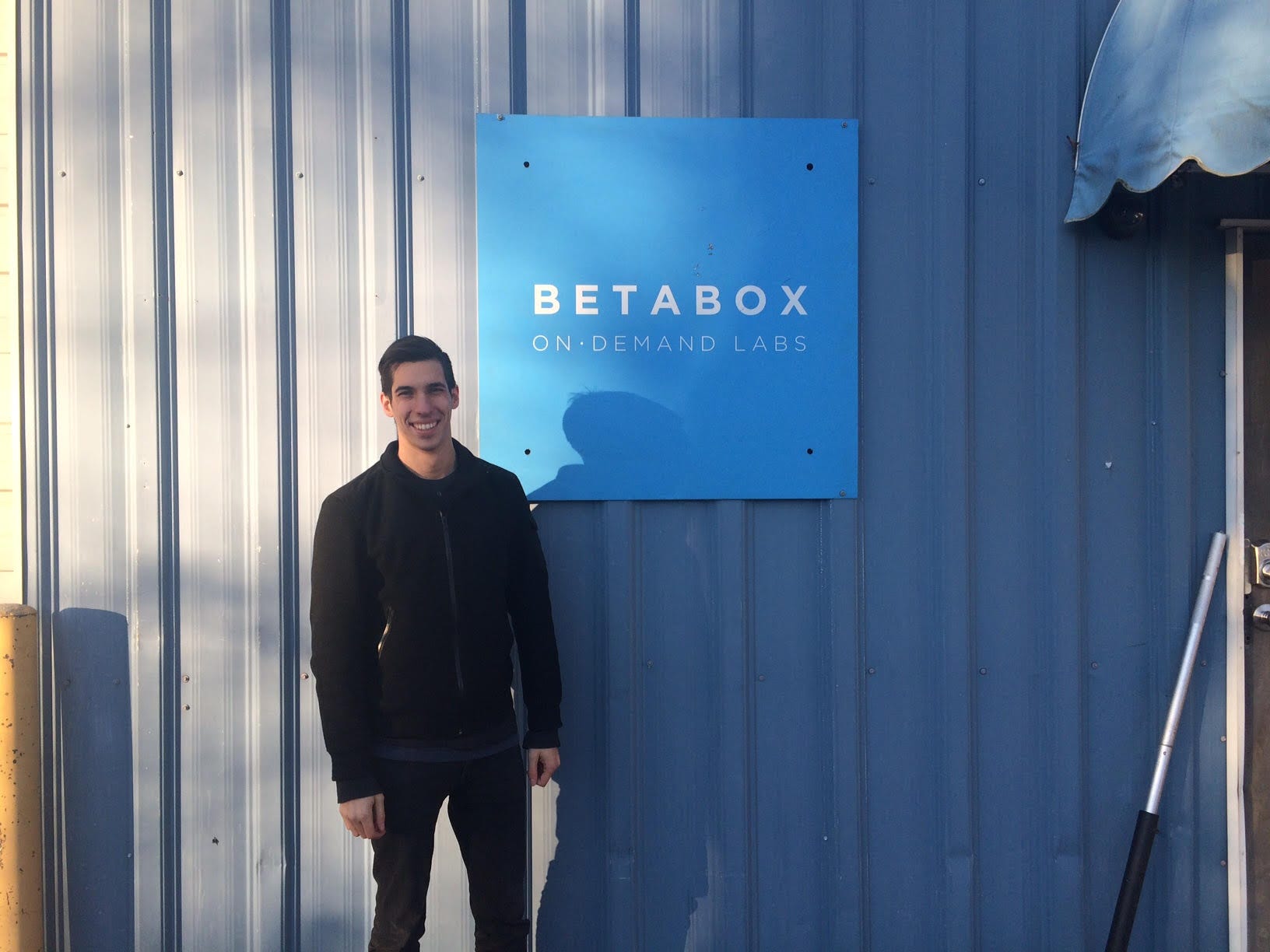Considering Betabox
A Lesson in Makerspaces
Yesterday, I got the chance to hang out with Sean Newman Maroni and talk about Betabox, makerspaces and educational tech.
Since running Involute back in Lagos, I have become interested in makerspaces and the business models that accompany these spaces to inspire the kind of creativity that is the overarching purpose. But just recently, we have seen that the typical makerspace model of users paying for time to use the machines may not be the most sustainable. In the past also, I have written about possible models here.
Nothing however prepared me for Betabox. While scrolling through my Twitter feed, I came across the company through a click spiral and instinctively subscribed to their newsletter. The next day, I got an email from Sean just reaching out and I quickly followed up that automated message. A month from that, I am visiting in the Research Triangle and paid him a visit.


Betabox offers learning spaces in boxes (think shipping containers) that are equipped with tools typically seen makerspaces. These boxes are beautifully designed and set up to hold about 15 pupils. Now we have seen mobile makerspaces before, but Betabox has an educational curriculum that caters for K12 pupils while also providing the logistics and fabrication. That kind of total service helps provide unique experiences both for schools or companies who lease the boxes and the pupils who take part.
Fablab on Wheels is another one of my favorite mobile makerspaces.
Many 3D printers sit in homes and shops unused, something Sean calls the ‘dusty 3D printer problem’. This is a cause for concern particularly for schools who are interested in creative spaces but fear it could turn to disuse; leasing boxes from Betabox solves this as then they only have it for 1–3 days at a time.
In the very early days of Hardware Lagos, we talked about this too and created a 3D Printer Pool for people to list their 3D printers with their locations and receive jobs. It did not turn out quite as well as we thought.
Last year, Betabox powered the Curiosity Cube for MilliporeSigma. The life science company wanted to engage young kids through creative experiences and turned to Betabox. The result was a beautiful box that toured the US.

Thinking about Nigeria, a model like Betabox is interesting as it reduces the need for a makerspace in a popular location and the associated costs, such as rent and publicity that comes with such a location. If such an outfit operated out of a city like Ibadan, they could attract talent from UI and be able to set up for an activity in Lagos with only three hours notice. In my experience, having a demo in public with fabrication tools attracts a crowd of interested participants in such a way that they can think of multiple ways the technologies can be useful.
While logistics will still present a challenge, this cost can be transferred to the school (or company) leasing the box. For such a client, the payoff will be in the number of people who would be served by its operation. Schools are more interested in the number of students that can benefit from a programme in order to quantify its benefit.
In reading about this company, one could underestimate the amount of engineering that goes into building these experiences. The interior design is done completely in house, although they engage contractors every now and then. Building a trailer is no small feat, particularly when you have to cut your own sheets.


A key differentiation that is important here is the curriculum, and this is an avenue for unique innovation. Developing teaching methods with fabrication as an intrinsic feature gives an outlet for the growing creativity of a pupil, something all parents want for their children. With a recipe of experiences like theirs, they leave others with something to think about.
Two and a half years ago I designed my first educational game: a map puzzle for Nigerian states. Parents (and doting aunts) loved the game but school administrators could not purchase at the price point which made sense for something produced by 3D printing. A solution like Betabox presents an opportunity to try out educational games aided by digital manufacturing, because one should be able to create anywhere.
